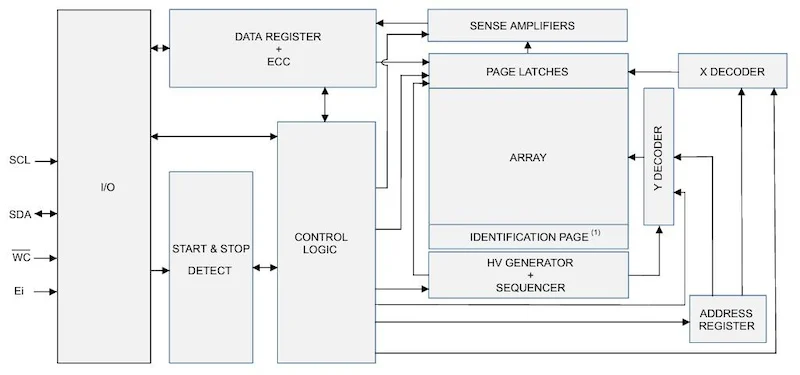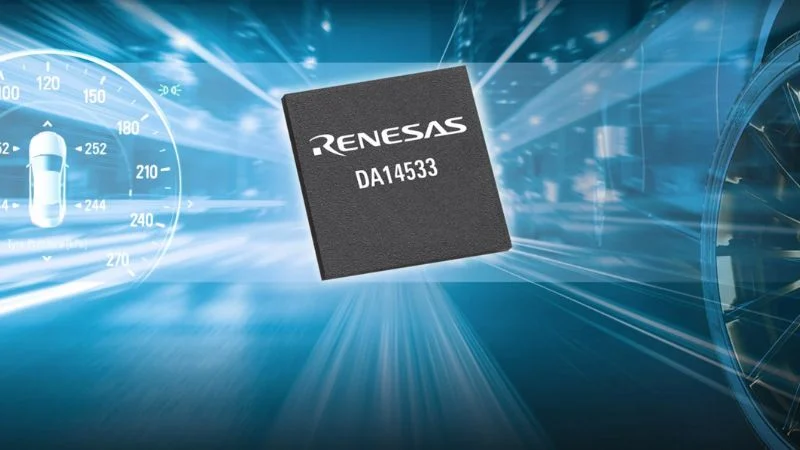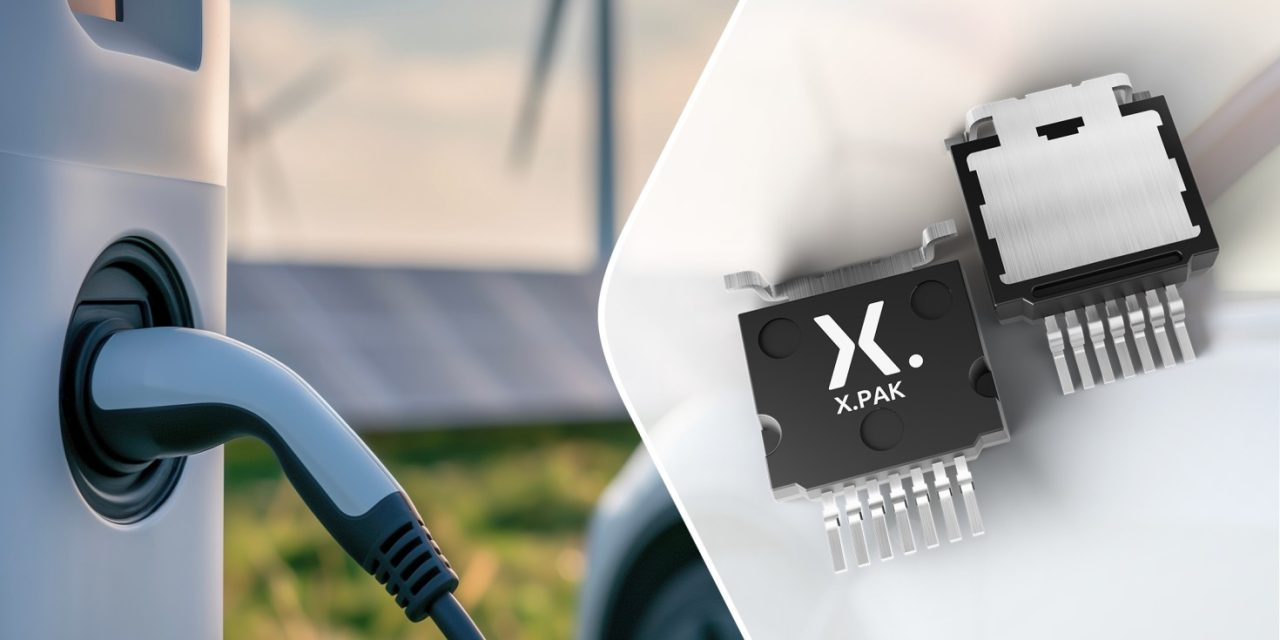The new memory delivers identification and traceability unique with a 128-bit read-only ID, including EEPROM capacities from 32 Kb to 2 Mb.
STMicroelectronics has released the first two members of a new serial EEPROM family: the M24C64-UFMN6TP and the M24128-UFMN6TP (datasheets linked). The M24xxx-U family’s salient feature is a permanent 128-bit read-only unique ID (UID) designed to allow traceability, identification, and sustainability. In addition to device ID functionality, the read-only UID enables version identification for multi-variety field support.

M24xxx-U series serial EEPROM comes with an unchangeable unique ID number.
With computing capability comes the risk of counterfeiting and version-to-version compatibility concerns. Service departments need easy methods to validate repairable products. While some microcontrollers have their own UID, many do not. Placing the ID in the serial EEPROM ensures that the product can have the UID capability regardless of the microcontroller used.
ST claims its new serial EEPROMs can form the basis of entry-level security without additional hardware.
Key Features of the New Serial EEPROMs
The M24xxx-U family packages memories in an 8-pin SO8N form factor. The serial EEPROM supports both random and sequential read modes and provides write protection of the entire memory map. The non-changeable identification page holds the 128-bit identifier but has a 256-bit space for potential ID size expansion.

M24C64-U block diagram.
Key features of the family include:
- 32-Kb through 2-Mb capacities with 32-byte page size
- Four million write cycles
- 200-years data retention
- Operating voltage from 1.7 V to 5.5 V
- I²C interface supporting 1 MHz, 400 KHz, 100 KHz modes
- Random and sequential read modes
- Hardware write protection of the whole memory array
- Byte and page write within 5 ms
The Need for Long-Term ID Storage
Serial EEPROMs are typically used alongside microcontrollers for parameter storage, data log storage, and product or owner identification information. The M24xxx-U family’s UID enables more secure versions of all of the above. While serial EEPROMs are often used to store product and version ID numbers, without the read-only ID, the identification is not secure. The unique read-only ID doesn’t occupy the main EEPROM data space and doesn’t require any additional code or circuitry to remain secure.
EEPROMs, in general, are far more reliable than they were in the past. ST's proprietary CMOS EEPROM technology takes that reliability even further. The parts are rated for an industry-leading four million write cycles. Data retention is specified at 200 years.
While those numbers may sound far larger than is needed, long-life industrial products benefit from that level of reliability. Large systems are often upgraded as technology advances, and more machines come with 20 to 50 years (or greater) life expectancy. While data logging and protocol technology is still rapidly advancing, it is stable enough for remote monitoring and logging systems to be deployed and left to work for decades. With such long deployments, a 200-year life expectancy provides an appropriate safety margin.
Pricing and Availability
The full product line will start at 32 Kbit and range up to 2 Mbit in seven variants. The 64-Kbit M24C64-UFMN6TP is available now for high-volume applications that require serialization. The 128-Kb M24128-UFMN6TP is also shipping now, with the remainder of the product line promised for Q2 2025.



